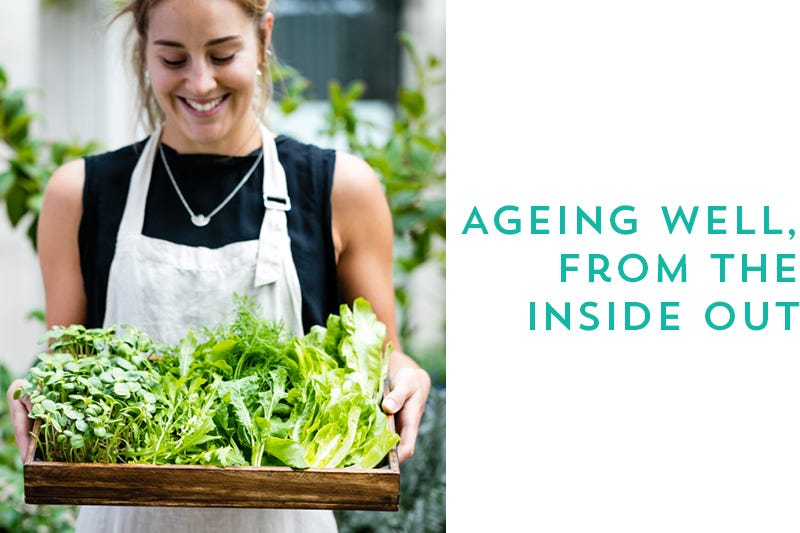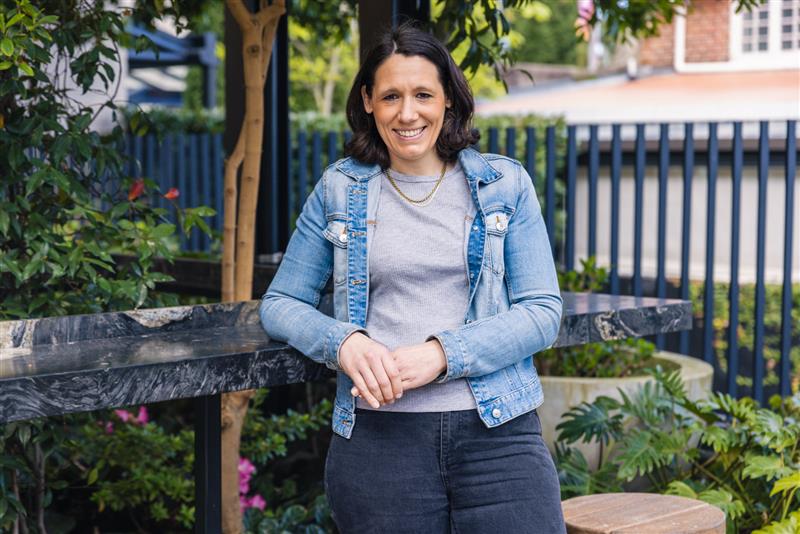
Key takeaways:
- Oxidants and free radicals can cause irreparable damage to our DNA and affect cell regeneration
- Antioxidants scavenge the free radicals in our bodies and neutralise them so they’re no longer harmful
- Aim to eat vibrantly coloured fruit and veggies, and nutrient dense foods like salmon, nuts and seeds, legumes and whole grains to help increase the antioxidants in our diets
Although ageing may not seem directly specific to weight loss and maintenance, ageing well can actually work in parallel to weight loss as the healthy lifestyle habits developed in driving weight loss, can also help to reduce the signs of ageing.
Combating the signs of ageing might sound like the work of a collagen-infused skin cream or serum, but the most effective form of anti-ageing occurs from the inside. What we’re eating and doing to reduce the ageing oxidants in our bodies, has a much greater impact than any special serum.
Although ageing is inevitable, the effects of ageing present themselves at different times and rates, and we want to tap into what’s slowing rates of ageing. But first, let’s touch on what’s affecting the ageing process.
Free Radicals and Oxidants
Oxidants are the free radicals formed as a by-product from some metabolic processes in our body, or from the environment (e.g. smoking, pollution or radiation). Our bodies can cope with a small number of oxidants (it’s actually essential to have some) but our bodies need to work to neutralise the excess build-up of oxidants, as in excess they’re extremely damaging to our cells and membranes.
Free radicals have shown to cause damage to body’s DNA, proteins and lipids which can lead to diseases including cancers, brain deterioration conditions such as Alzheimer’s and coronary heart disease.
Cell regeneration is essential in keeping us healthy and our bodies functioning well, but overtime free radicals cause damage to our DNA and our telomeres (these play an essential part in DNA replication process) which reduces the ability for our cells to replicate and regenerate. As our telomeres degenerate, we begin to see the signs of aging.
Glycation is another damaging process that happens to our bodies’ DNA, protein and lipids, affecting cell replication. This is where sugars bind to the end of the DNA, hindering replication and leading to the same ageing and damaging effects to our bodies. Being mindful of our overall sugar consumption can help to reduce glycation.
The importance of lifestyle and diet choices
This is where antioxidants come in — antioxidants scavenge these free radicals in our bodies and neutralise them so they’re no longer harmful.
Certain vitamins and minerals act as antioxidants e.g. vitamins A, C and E, and copper, zinc and selenium. In addition, plant phytochemicals (the pigments you see in bright colours of fruit and veggies) are some of the most powerful antioxidants.
Fruits and vegetables are our best sources of antioxidants and the brighter the colour, the more antioxidants they contain (due to those phytochemicals). E.g. tomatoes, blueberries, leafy greens, kumara or carrots. Meats, seafood, dairy and legumes also provide a lot of the minerals that work as antioxidants e.g. salmon, eggs, milk and nuts.
Here at Fresh Start we’re constantly looking to increase the variation and vibrancy of the colours of our fresh produce. When there’s colour from the pink salmon, or deep red of beetroot or orange kumara, we know we’re providing our Fresh Start foodies with a dinner bursting with antioxidants. This colour rule applies to foods that are this colour in nature, artificial colouring isn’t the same thing!
Oxidising factors include — smoking, alcohol, stress, pollution, radiation, excess sun exposure, certain foods (those high in sugars, trans and saturated fats, nasty additives and preservatives).
As you can see, there are a number of damaging factors and processes happening right down to the DNA level in our bodies’ cells, which are accelerated through poor diet and lifestyle choices.
Minimising our bodies’ exposure to oxidising factors (those that promote free radical production) and increasing our antioxidant and nutrient intake may help to slow cell and DNA damage, to reduce signs of ageing, slow onset of chronic disease, or elongate our years with good health and well being.
Changes like eating more greens and coloured veggies, or reducing alcohol intake have much more of an impact than simply reducing our calorie intake or working towards our goal weight (although these are great side effects). Making small changes like these allow our bodies to continue functioning at an optimal level, and allows our cells to continue to repair and replicate, keeping our long term health in good shape.
Information from:
- Kim, S., Kaminker, P. & Campisi, J. Telomeres, aging and cancer: In search of a happy ending. Oncogene 21, 503–511 (2002). https://doi.org/10.1038/sj.onc.1205077
- Shammas M. A. (2011). Telomeres, lifestyle, cancer, and aging. Current opinion in clinical nutrition and metabolic care, 14(1), 28–34. https://doi.org/10.1097/MCO.0b013e32834121b1


